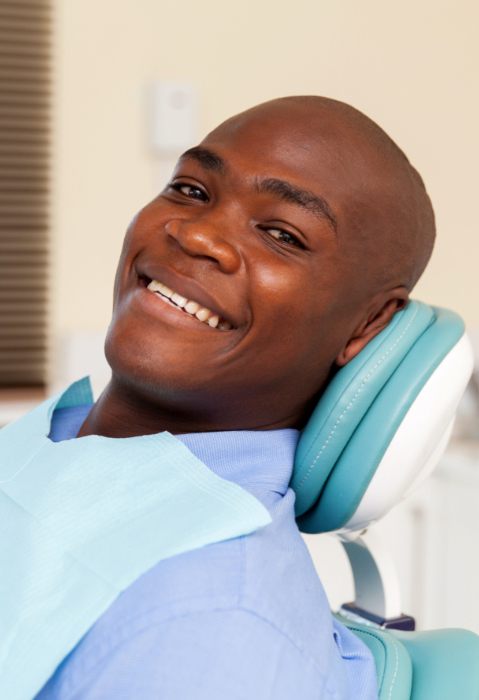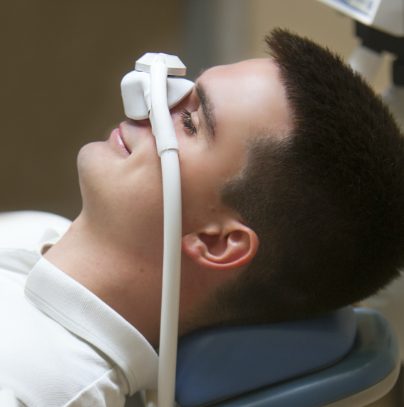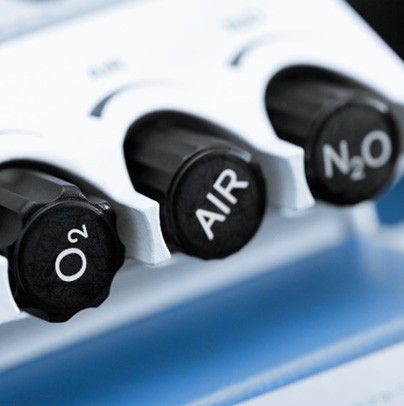Sedation Dentistry – Garland, TX
Experience Worry-Free Dental Care
At North Garland Family Dental, our warm, friendly dentists and team members go out of their way to make sure you’re comfortable at every visit. However, we understand that some patients need a little extra help relaxing in the treatment chair. That’s why we offer sedation options to make your dental experience as stress-free as possible. To learn more about the ways in which we can take the anxiety out of your dental care, contact us today for sedation dentistry in Garland, TX!

Why Choose North Garland Family Dental for Sedation Dentistry?
- Friendly, Experienced Dentists & Team
- Your Comfort Is Our Top Priority
- Sedation That Is Personalized for Each Patient
Oral Conscious Dental Sedation

Patients with mild to moderate dental phobia may benefit from oral conscious sedation. Dr. McHone can prescribe you a potent anti-anxiety pill to take about an hour before your appointment. By the time you reach our dental office, you should feel relaxed enough to make your treatment a breeze. During your procedure, you’ll be awake enough to respond to our requests, but you’ll likely have little to no memory of the experience afterward!
Nitrous Oxide Dental Sedation

If you only need a light sedative just to “take the edge off,” we also offer nitrous oxide sedation. You might know this calming solution by another name: laughing gas. It’s a bit of a misnomer since it doesn’t cause everyone to feel giggly. It does, however, cause anxiety, nerves, and stress to dissipate, leaving patients with a light, euphoric feeling. If you are interested in learning more about this type of dental sedation – including who is usually a good candidate – then keep reading!
Who is a Good Candidate for Nitrous Oxide?

Nitrous oxide has been used for decades to help patients who:
- Have a fear of needles
- Have a disability that makes it difficult to stay still in the treatment chair
- Struggle with dental-related anxiety
- Experience stress from the sights and sounds of the dental office
- Need more extensive care, like multiple tooth extractions
As always, the only way to truly find out if you’re a candidate is by scheduling an appointment. After learning about your medical and dental history, we can determine if nitrous oxide is the solution you’ve been looking for.
How Does Nitrous Oxide Work?

You may have heard that nitrous oxide is as easy as breathing, and it’s true! After you settle into the treatment chair, we will place a small mask over your nose and instruct you to breathe in the odorless gas. Within a few minutes, waves of relaxation should wash over your whole body, ensuring you don’t feel stressed, anxious, or nervous. Like with oral conscious sedation, you’ll remain awake the entire time. So, it will be easy for you to respond to verbal cues and communicate with us throughout your appointment.
Aftercare for Nitrous Oxide

Once we’re finished, we will switch off the nitrous oxide and remove the mask, allowing you to breathe in pure oxygen again. Shortly after, the effects will begin to wear off. That means no down time or lingering grogginess! Instead, you’ll be able to get back to your normal routine immediately following your appointment (unless the treatment you received requires otherwise, of course).
Sedation Dentistry FAQs
Is Sedation Dentistry Safe?
Absolutely! Sedation dentistry is generally considered safe for most patients. Nitrous oxide, in particular, is widely tolerated and considered the safest option for many individuals. Before administering sedation, our team will carefully review your medical history and medications to prevent any potential interactions.
During the procedure, your vital signs will be closely monitored by our team to ensure your safety, including blood pressure, oxygen levels, and heart rate. Overall, with proper screening and monitoring, sedation dentistry can provide a safe and comfortable experience for patients.
What Are the Risks of Sedation Dentistry?
While sedation dentistry is generally safe, certain people may be at higher risk of complications. For example, patients with obstructive sleep apnea or those taking specific medications may face increased risks. Also, keep in mind that people react differently to sedatives and other medications used during the procedure.
Some common side effects can occur due to sedation, such as nausea, headache, and grogginess (except with nitrous oxide), which may persist for several hours post-op. It's crucial for patients to disclose their medical history and current medications to minimize potential risks and ensure a safe experience.
Is Sedation Dentistry Covered by Insurance?
Most dental insurance plans typically do not cover the cost of sedation dentistry, as it's often considered a luxury treatment similar to cosmetic procedures. However, there can be exceptions to this rule. For instance, patients with disabilities such as cerebral palsy, Parkinson's, or autism (which need sedation for dental care) may have coverage. Additionally, complex procedures like multiple tooth extractions might be covered under certain circumstances. However, routine treatments like root canals or fillings are usually not covered.
It's important to review the specifics of your insurance plan, as coverage can vary widely. Our team can assist in understanding your policy and exploring options to make your dental care more affordable.
Will I Feel Any Pain with Dental Sedation?
With dental sedation, you're unlikely to feel significant pain during your procedure. Some types of sedation will keep you awake but dampen your body's pain response. Any discomfort you might feel is often perceived as pressure rather than pain. Additionally, we may administer a local anesthetic to numb your mouth, further minimizing any potential discomfort. Overall, while there might be some sensation, the goal of sedation is to ensure your comfort throughout the procedure.






